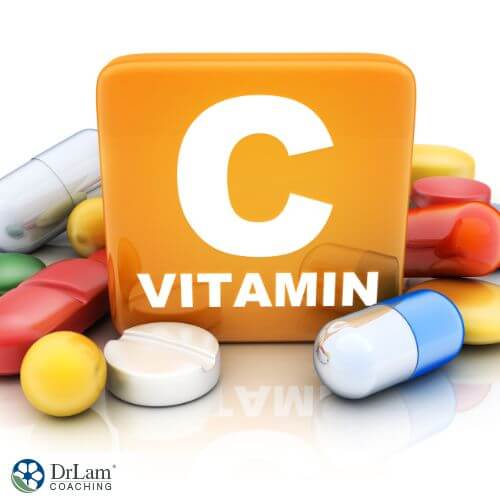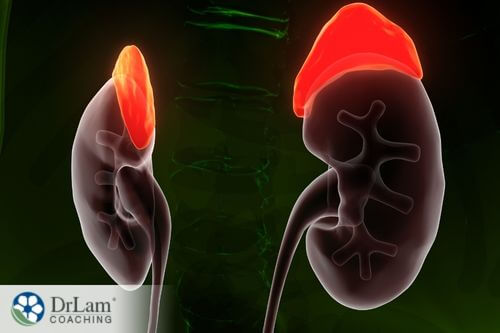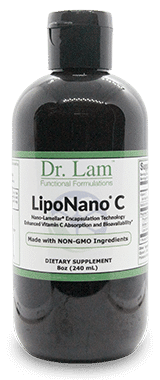 Vitamin C is an important vitamin that has many health benefits. A vitamin C deficiency occurs when you don't consume enough vitamin C to maintain bodily function. Whilst a vitamin C deficiency may sound like a small thing, it can have major effects on your body. This article will review the top signs of vitamin C deficiency and what you can do to prevent it.
Vitamin C is an important vitamin that has many health benefits. A vitamin C deficiency occurs when you don't consume enough vitamin C to maintain bodily function. Whilst a vitamin C deficiency may sound like a small thing, it can have major effects on your body. This article will review the top signs of vitamin C deficiency and what you can do to prevent it.
Vitamin C is one of the water-soluble vitamins essential for your health. It dissolves in water, your intestine absorbs it, and it crosses over into the blood, which carries it to your cells. If there is an excess of vitamin C, your body excretes it through your urine. This reduces the chances of developing toxicity to vitamin C. However, since it is not stored in your body, there is a chance of developing a vitamin C deficiency.
Vitamin C is found naturally in foods such as fruits and vegetables. Some of these sources that have a high vitamin C content are:
Vitamin C is also available in a supplemental form; common supplemental forms of vitamin C are capsules, chewable tablets, and powder forms.
The recommended intake of vitamin C for women is 75 mg and 90 mg for men. This amount is the value C of vitamin that is necessary for essential functions, although it is not necessarily optimal. The maximum safe dose of vitamin C studied is 2000 mg. This means that anything above 2000 mg could potentially cause harmful effects; however, more guidance from a healthcare provider is recommended.
While the body does absorb vitamin C, there are factors that can affect absorption. These factors include age and smoking.
Vitamin C has many important functions within the body as an antioxidant. Due to bodily processes and in times of stress and illness, your body produces free radicals. Free radicals are unstable molecules that can cause damage to your body. Antioxidants help to stabilize these free radicals and help to prevent free radical damage.
Other roles of vitamin C in the body are:
A vitamin C deficiency is rare in developed countries that have access to fresh fruits and vegetables. However, due to poor diet, age, smoking, and other medical conditions, a vitamin C deficiency can occur.
A severe vitamin C deficiency can take months to develop. However, signs of a vitamin c deficiency can occur from a mild deficiency.
Vitamin C plays an important role in collagen production. Collagen is a protein within your skin that gives it its elasticity. If vitamin C levels are low, it can cause bumpy, chicken-like skin on your upper arms, thighs, and buttocks.
This bumpy skin is due to a buildup of keratin protein in the skin. Keratin is another form of protein. However, it is more abundant in your hair and nails with lower levels also found in your skin. When collagen levels become low in the skin, the ratio of keratin increases, causing this bumpy skin. This sign of vitamin C deficiency takes three to five months of a low intake of vitamin C.
 Whilst collagen is the abundant protein in the skin, keratin is the abundant protein in your hair. Vitamin C helps to support the production of keratin. If vitamin C levels are low, keratin cannot be produced properly. This leads to the hairs growing bent or in coils, resembling a corkscrew.
Whilst collagen is the abundant protein in the skin, keratin is the abundant protein in your hair. Vitamin C helps to support the production of keratin. If vitamin C levels are low, keratin cannot be produced properly. This leads to the hairs growing bent or in coils, resembling a corkscrew.
These hairs may not be noticeable as they are weak and eventually break off. This sign of vitamin C deficiency can resolve within a month of an adequate vitamin C intake.
Your gums require sufficient vitamin C. If these levels are insufficient, your gums can become weak. As well as being weak, your gums can also become inflamed, and the blood vessels can bleed more easily. If this sign of vitamin C deficiency advances, it can cause the gums to appear purple and rotten and can lead to tooth loss.
This sign is also known as scurvy and was commonly seen in sailors due to the lack of fresh fruits and vegetables at sea.
Vitamin C is commonly recommended for its role in regulating the immune system. Studies suggest that vitamin C accumulates in immune cells, assists in functions that destroy pathogens, and helps clear dead and damaged cells.
A vitamin C deficiency can cause poor immune health leading to more frequent infections. It was found that individuals with scurvy frequently died of infections due to the reduced effectiveness of their immune systems.
Vitamin C also plays a role in weight management. It does this by regulating the fat released from fat cells, reducing stress hormones that can contribute to weight gain, and reducing inflammation. Studies suggest a link between low vitamin C levels and an increase in belly fat. However, more studies are needed to verify this relationship.
Damage from the free radicals and inflammation occurs with many conditions such as diabetes, heart conditions, and covid-19. Low levels of vitamin C are also linked to higher levels of inflammation as well as heart conditions. Reducing inflammation and the level of free radicals is important and it has been found that free radicals from illnesses can increase the risk of comorbidities developing.
Vitamin C is an important antioxidant that helps to prevent damage from free radicals and can help the body recover from this damage.
There is a relationship between vitamin C and anemia from an iron deficiency. Iron deficiency can result in a form of anemia. This condition occurs when the blood does not have enough red blood cells to carry oxygen around the body, This can cause tiredness, paleness, and headaches.
Vitamin C enhances the absorption of iron. If vitamin C levels are low, it can reduce the absorption of iron, resulting in anemia. A vitamin C deficiency can also cause bleeding, and if the loss of blood occurs persistently, it can result in anemia.
Adrenal Fatigue Syndrome (AFS) is a cluster of symptoms that occur as a response to chronic stress. These symptoms include disturbances in weight, a poor immune system, and an increase in inflammation.
 Your body is best able to cope with short-term stress. Your adrenal glands are two glands above your kidneys that release hormones in response to short-term stress. The NeuroEndoMetabolic (NEM) Stress Response supports your adrenal glands. The NEM system consists of six different circuits of related organ systems that help manage this stress.
Your body is best able to cope with short-term stress. Your adrenal glands are two glands above your kidneys that release hormones in response to short-term stress. The NeuroEndoMetabolic (NEM) Stress Response supports your adrenal glands. The NEM system consists of six different circuits of related organ systems that help manage this stress.
In chronic stress, your adrenal glands become depleted and are unable to release sufficient stress hormones. This results in AFS and imbalances within the NEM system. The symptoms that individuals experience depend on where the imbalance occurs.
Vitamin C plays an important role in the body and affects many different circuits of the NEM system. If there is a vitamin C deficiency, it can increase the symptoms of an imbalance within the circuits. This makes it important that your vitamin C intake is within the recommended requirement and that your vitamin C levels are sufficient.
Vitamin C has many important roles in the body and can help to relieve symptoms of AFS; however, there are some cautions to be aware of. In AFS, the body can become sensitive to any new products. This includes new foods as well as supplements. The FDA does not regulate dietary supplements, and the quality and safety of ingredients are not a guarantee. This can result in your body negatively reacting to the supplement and can set you back in your healing journey.
If you are currently experiencing AFS and would like to boost your vitamin C levels, consult with your healthcare provider first. They will be able to provide guidance with regard to vitamin C sources that will support your body while reducing the chances of your body reacting negatively.
Vitamin C is an important vitamin that plays many roles in the body. A vitamin C deficiency can cause many signs within the body, both minor and serious, that can impact your health. A vitamin C deficiency can be remedied by either food sources of vitamin C or supplements. Once your vitamin C intake increases, signs of a vitamin C deficiency should diminish and eventually disappear.
If you are concerned about your vitamin C levels and would like to boost them safely as part of a plan that will support your body as a whole, call the Dr. Lam team at +1 (626) 571-1234 for a free initial consultation, or send us a question by clicking here.

Best Absorbed Liposomal Vitamin C
There are multiple forms of vitamin C that are available in supplement form to help prevent a vitamin C deficiency. Vitamin C with bioflavonoids is one form that is favored as studies suggest bioflavonoids are a type of antioxidant help to enhance the absorption of vitamin C.